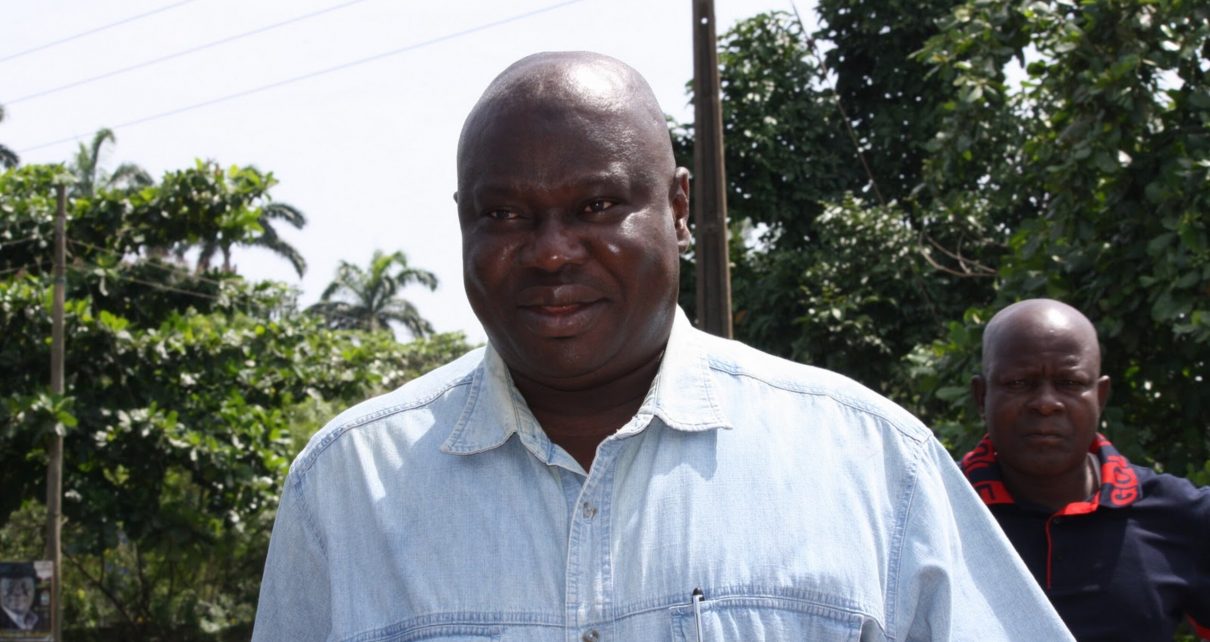An Economic and Financial Crimes Commission (EFCC) witness on Wednesday said that he did not receive any petition on money laundering against a former Speaker of the Lagos State House of Assembly, Adeyemi Ikuforiji.
Mr Adebayo Adeniyi, an EFCC investigator, testified as the first prosecution witness at the resumed trial of Ikuforiji before a Federal High Court in Lagos.
Adeniyi was cross-examined by defence counsel, Mr Dele Adesina (SAN).
The News Agency of Nigeria (NAN) reports that Ikuforiji is facing trial alongside his former Personal Assistant, Oyebode Atoyebi, on a 54-count charge bordering on N338.8 million money laundering.
They, however, pleaded not guilty before Justice Mohammed Liman.
During examination-in-chief on Nov. 25, Adeniyi testified how investigations into the case were triggered by a petition filed by an agency.
Adesina began cross-examination of the Adeniyi on Wednesday.
He asked: “At the last adjourned date, you gave evidence that a petition written by an agency triggered your investigation?”
The witness replied, “Yes.”
Adesina then urged the witness to look at a photocopy of the said petition which, he said, was a call for investigation into N7 billion fraud.
The witness confirmed that it was the petition.
When asked if the original copy was in the custody of the EFCC, he replied, ” It should be.”
Defence counsel consequently tendered the document before the court and it was admitted and marked Exhibit A.
Defence counsel then asked the witness if in the course of his investigation he found any allegation of N7 billion fraud established against Ikuforiji.
The witness testified that he did not investigate fraud and could only speak for money laundering.
Rephrasing his question, Adesina asked the witness, “Did you receive any petition on money laundering against the defendant?”
He replied, “No, I did not.”
When asked if government treasory is a financial institution, he replied, “It is not.”
The witness also said that he was in court to represent EFCC and not in his personal capacity.
After the cross-examination, EFCC counsel, Mr Ekene Iheanacho, sought to call a second witness, Mr Adewale Taiwo, a former Clerk of the Lagos State House of Assembly.
However, defence counsel objected, arguing that Taiwo’s name was not listed in the proof of evidence.
“He just brought this witness from the moon,” defence counsel said.
The court confirmed from its record that Taiwo was subpoenaed but said it could not find the witness’s statement on oath.
Defence, therefore, urged prosecution to make progress in the case or close its case.
The court adjourned the case until Feb. 3 for continuation of trial.
The News Agency of Nigeria (NAN) reports that the defendants were first arraigned on March 1, 2012, before Justice Okechukwu Okeke on a 20-count charge bordering on financial misappropriation and money laundering.
They, however, pleaded not guilty and were granted bail.
The defendants were re-arraigned before Justice Ibrahim Buba, following a re-assignment of the case.
Buba granted them bail in the sum of N500 million each with sureties in like sum.
On Sept. 26, 2014, Buba discharged Ikuforiji and his aide of the charges, after upholding a no-case submission by them.
Buba held that the EFCC failed to establish a prima-facie case against the deferndants.
Dissatisfied with the ruling, the EFCC through its counsel, Mr Godwin Obla (SAN), filed an appeal on Sept. 30, 2014, challenging Buba’s decision.
Obla had argued that the trial court erred in law when it held that the counts were incompetent because they were filed under Section 1(a) of the Money Laundering (Prohibition) Act of 2004 which was repealed by an Act of 2011.
EFCC further argued that the lower court erred when it held that the provisions of Section 1 of the Money Laundering (Prohibition) Acts of 2004 and 2011, only applied to natural persons and corporate bodies other than government.
The commission had also submitted that the trial judge erred in law when he held that evidence by prosecution witnesses supported innocence of the defendants.
In its judgement, the Lagos Division of the Court of Appeal in November 2016, agreed with the prosecution and ordered fresh trial of the defendants before another judge.
Following the decision of the appellate court, the defendants headed to the Supreme Court, seeking to upturn the Court of Appeal’s decision.
However, the apex court upheld the decision of the Court of Appeal.
EFCC had alleged in the charge that the defendants accepted cash payments above the threshold set by the Money Laundering Act without going through a financial institution.
The commission accused the defendants of conspiring to illegally accept cash payments in the aggregate sum of N338.8 million from the House of Assembly without going through a financial institution.
It accused Ikuforiji of using his position as speaker to misappropriate funds belonging to the assembly.
The EFCC said that the defendants committed the offences from April 2010 to July 2011.
NAN reports that the alleged offences contravene the provisions of Sections 15 (1d), 16(1d) and 18 of Money Laundering Acts of 2004 and 2011. (NAN)


